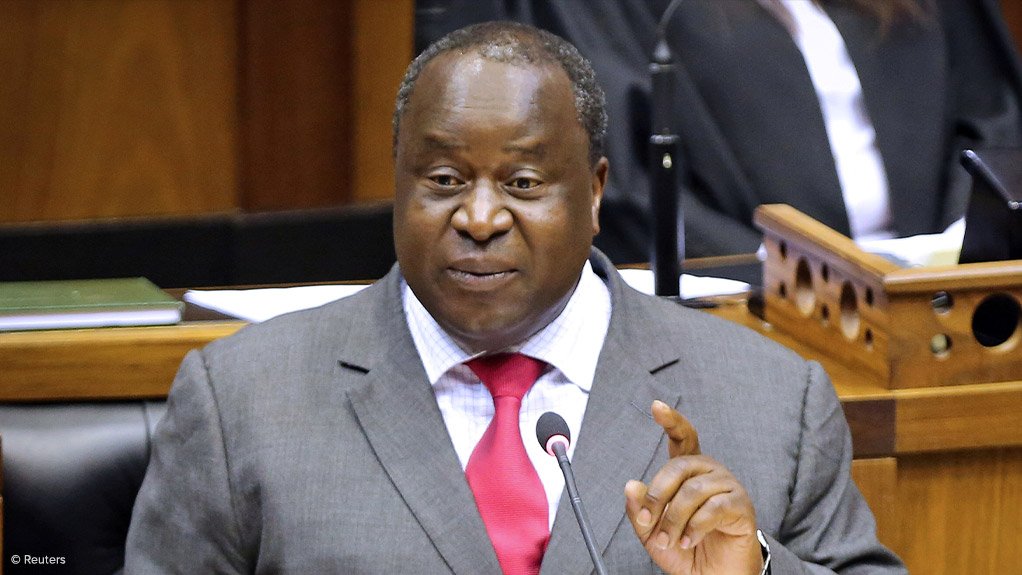Executive Chairman of the World Economic Forum, Professor Klaus Schwab,
President of the World Economic Forum, Mr Børge Brende,
Deputy Secretary-General of the United Nations, Ms Amina Mohamed,
Heads of State and Government,
Ministers,
Members of the business community,
Representatives of international organisations,
Ladies and Gentlemen,
It is my privilege to address this first plenary session of WEF Africa 2019 at a time when we are all confronted with the same question: how to harness the potential of the 4th Industrial Revolution in pursuit of development and economic growth.
And importantly, how to ensure that as we take this quantum leap into the future, we do not leave society’s most marginalised behind.
Disruptive trends and technologies are changing the way we live, the way we work and do business, and the way we govern.
We must respond with agility to craft a roadmap for navigating this new environment.
We must ensure that our citizens are prepared, and, if necessary, that they are shielded from any adverse consequences.
As African countries, we must take advantage of the opportunities presented by technological change to enhance our competitiveness in the global landscape.
This rests on our ability to adapt and to evolve.
The growth of mobile money systems on the continent is an example of just how much technology can broaden access to markets, connect companies and support the growth of start-ups and small businesses.
We are entering an era in which many things are unknown.
We need to prepare our young people for jobs that haven’t yet been created.
We need to adopt incentive programmes for industries that may experience significant structural disruption in just a few years’ time.
But at the same time there is much we do know.
We know that the free flow of data is at the heart of this revolution.
Consideration will therefore have to be given to privacy, data protection and intellectual property rights.
We know that workforces in just about every industry will be impacted by automation, possibly resulting in downsizing and redundancies.
According to McKinsey, up to 375 million workers globally may have to change their occupational category and acquire new skills by 2030.
Employers will need to make substantial financial commitments to ongoing upskilling and reskilling in response to labour market needs.
We need to stimulate entrepreneurial activity because many of the big conglomerates that are the lifeblood of the economies of today will be displaced by leaner and more adaptable small and medium sized businesses.
Our response must be collaborative, multi-sectoral and inclusive.
That is why we, as South Africa, are working with our neighbours to develop a continental strategy led by the African Telecommunications Union.
This collaboration must extend itself to the private sector, academia, policy makers and other stakeholders.
In South Africa, for example, we have established a Presidential Commission on the 4th Industrial Revolution to identify strategies and action plans that will position our country as a competitive global player in this new space.
Our response to the 4th Industrial Revolution should not merely be defensive.
We must harness these tectonic shifts to solve some of our most pressing economic and developmental challenges.
Africa can and must take advantage of technological advances to industrialise, to pursue inclusive growth and to attract investment.
New technologies can also be put to use to improve service delivery.
We have seen, for instance, the way in which India has leveraged technology to broaden access to banking in its rural areas, and has even digitised its public distribution system that provides subsidised food and non-food items to vulnerable communities.
This type of innovation presents tremendous opportunities for tasks like social grant distribution, electrification and internet access.
We must be open to new ways of thinking.
We must be prepared to take risks, or risk being left behind.
We must always take the circumstances and varying levels of development of the many countries here into account.
What has worked in one place may not work in another.
When it comes to digital inclusion the focus must be on achieving critical mass on internet penetration.
We all know that economic growth, job creation and entrepreneurial activity is inextricably linked to broadband access.
We therefore need to ensure that broadband access – like health care and education – is available to all.
If we do not overcome social, economic and spatial inequality in the provision of broadband, we will simply perpetuate the economic exclusion of the majority of our people.
In the development of our policy and in the implementation of our programmes, we need to ensure that technology promotes greater equity and broader social and economic participation.
As countries of Africa, we share a common determination to be part of this new age of disruption and to join the economy of the future.
Just as the Greek god Prometheus seized fire and gave it to man, let us harness technology for the sake of human progress.
Let us harness it for our shared future.
I thank you.
EMAIL THIS ARTICLE SAVE THIS ARTICLE ARTICLE ENQUIRY
To subscribe email subscriptions@creamermedia.co.za or click here
To advertise email advertising@creamermedia.co.za or click here











